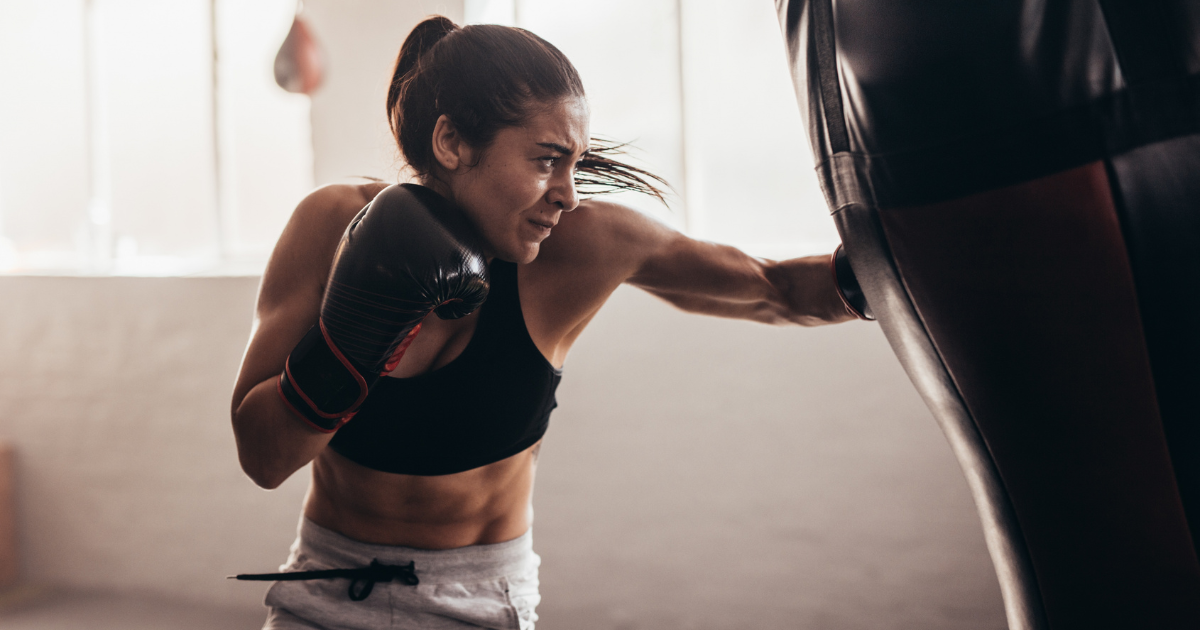How to deal with anxiety in sports
We all have anxiety about certain things, and for some, anxiety is a daily challenge that often stops people from doing what they love.

In this blog we break down some of the effects of anxiety for athletes, and what steps can be taken to try and overcome them.
Understanding your anxiety
Anxiety effects different people in different ways, and at different extremes. These are some of the most common signs of anxiety or feeling anxious.
- Feeling Overwhelmed: Feeling of intense pressure, making it hard to focus or perform to the best of your abilities.
- Fear: Anxiety can create a sense of fear and uncertainty, affecting your performance.
- Isolation: Dealing with anxiety as an athlete may leave you feeling lonely, as though as nobody understands what they are going through.
- Frustrated: When you let anxiety affect your performance, it can lead to you feeling frustrated and disappointed.
- Exhausted: Anxiety can be mentally and physically draining, leaving you feeling tired and run down, which negatively impacts your performance levels.
- Ashamed: Feeling ashamed or embarrassed about anxiety is a normal feeling, but it can make it difficult to reach out for help.
- Stressed: Anxiety can make it hard to relax and enjoy the sport that was once enjoyable.

Identify what triggers your anxiety.
Understanding what triggers your anxious feelings can help you to start challenging them. You must be honest with yourself when identifying your triggers, because denying them can make it worse.
If you identify with any of these triggers, you could be feeling anxious when it comes to sports and exercise.
- Performance pressure: Feeling a pressure to win or meet expectations from coaches, teammates or parents can be a major trigger for anxiety.
- Fear of failure: Fear of letting yourself or letting others down can be a significant source of anxiety as a young athletes.
- The stress of competition: The intense and competitive nature of sports can be stressful.
- Injury: Thoughts of getting injured and not able to play can be a trigger for anxiety, particularly in young athletes.
- The unknown: The uncertainty of the outcome of the game, match, or competition can be stressful and anxiety-inducing.
- Constant comparisons: As an athlete you may compare your performance to those around you, or those on tv, leading to those anxious feelings. Another common comparison athletes can make is on social media, where expectations are often unreasonable.
- Constant change: Some people don’t deal well with change, and the change of teams, coaches, or location can hard.
- Fear of rejection: You may fear being cut from a team.

Start taking steps to overcome your anxious thoughts
Overcoming those anxious feelings is the hard part, but don’t be put off, there are steps you can start taking today.
- Relaxation techniques: Practice deep breathing, yoga, or meditation to help calm your mind.
- Become mindful: Don’t focus on the past or the future, focus on what you can control, which is the present.
- Seek professional help: Don’t be afraid to ask for help. If you’re struggling to manage your anxiety on your own, then a therapist or counsellor can provide you with personal strategies and techniques tailored to your triggers.
- Stay organised: Manage your time effectively. If you’re anxious about showing up late, be sure to leave earlier. Pack your kit the night before so you don’t forget anything. Stay on top of the things that you can control and leave yourself better prepared to deal with anything else that comes up.
- Support system: Open up to your friends, family, coaches and fellow athletes. Having someone to confide in can provide you with a support system. Also, if you’re open about your anxious feelings, you could help to motivate others.
- Set realistic goals: Having goals is good, but try not to set them too high. Set yourself different goals for each session, but don’t be too disheartened if you don’t achieve them, as you’ll start to learn your boundaries.
And remember… it takes time: There is no overnight fix for anxiety, and it can take some time to start overcoming it, but if you keep taking small steps, you’ll find yourself further along than you think.
LATEST BLOG: The effects of alcohol on sport and exercise
BLOG: Dealing with anxiety in young players
BLOG: Building resilience in young players
Learn how to deal with anxiety with our eLearning course.
Did you know, anxiety can affect young athletes in a different way to adults? Our ‘Dealing with Anxiety in Young Players eLearning course will teach you how to detect heightened levels of Anxiety in your young players; along with the best ways of helping them deal with this in a positive way.
Enrol on the ‘Dealing with Anxiety in Young Players’ eLearning course
Take a sneak preview of the course here:
The relationship between mental health and young players
If you want to take a deeper dive into the mental health of young people in sports, then look no further than our ‘Mental Health for Young Players’ eLearning pathway. The pathway comprises of 4 online sports training courses on the Accelerate Sport LXP.
Understanding Mental Health in Young Players
Dealing with Anxiety in Young Players
Building Resilience in Young Players
Tackling Eating Disorders in Sport
Learn more about the pathway, and discover how you can earn discounts on your course purchases.
Click HERE to find out more.